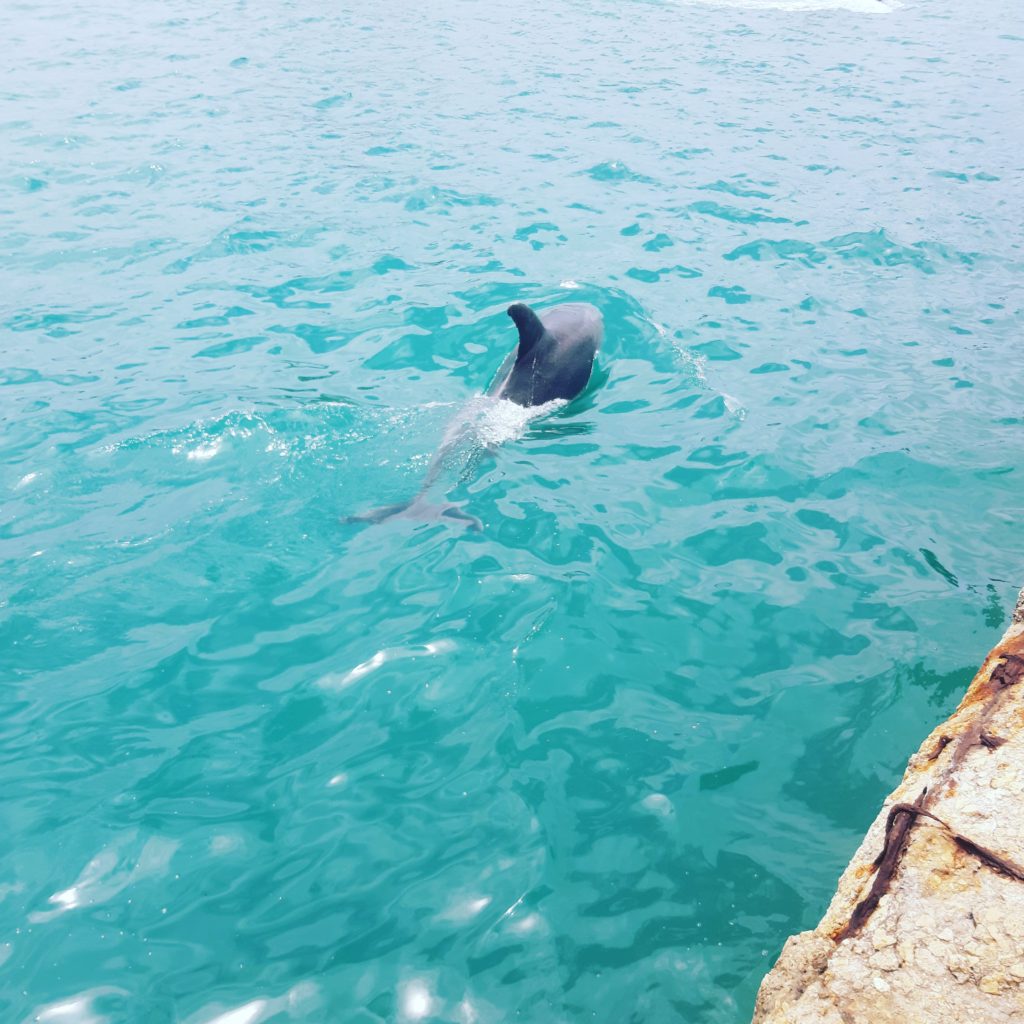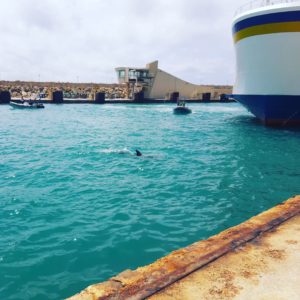Humans are extraordinary! They have evolved from knowing nothing into knowing quite a lot. First discovering the properties of fire to using fire to launch a space craft into space. However, humans can also do things that are not so great. Things like cutting down billions of trees to produce commercial products and disposing of waste irresponsibly with items such as single use plastic ending up in the ocean. But with a little care such things can be minimised by a great deal.
The covid-19 pandemic made us realise the effects of human activity on Earth. Many countries have had to go under quarantine or lockdown; with Malta experiencing similar circumstances too. During these months, Earth managed to heal slightly from all the harm caused by human activity. Air quality has improved significantly since there was much less traffic on the roads and less industrial activity. Sea pollution decreased as well and a good example of this are the canals of Venice.
 |
 |
Dolphins spotted at Mġarr harbour, Gozo. Photos by Ramona Attard
Wildlife has also experienced some positive effects from decreased human activity. Some animals have also been spotted in cities around the world due to the lack of human presence on the streets such as boars in the heart of Barcelona. In Istanbul, dolphins were swimming and jumping at the water surface again since the harbour was rather quiet when compared to much busier days. Albania saw an influx of flamingos flying in from Africa and the Southern Mediterranean to mate whilst millions of baby turtles are hatching on India’s empty beaches after a long time. Sadly, there were also some negative effects though. It is a fact that there has been a significant rise in animal poaching in many countries. People who lost their jobs or could not go to work, turned to hunting both for food and for leisure. Wildlife has now been faced with an additional threat which has been recently on the rise. All of this makes us realise how human activity has had an impact on these beautiful animals and their natural course.
Although it would be fortunate for us humans that the pandemic will eventually end and our lives will have a routine once again, it is unfortunate for wildlife since they will no longer be as free as they should be. A lot of animals are becoming extinct because of various factors resulting from general human activity. The below is a list of animals which became extinct in 2019 and those which are on the brink of extinction.
| Species Extinct in 2019 | Species on the brink of extinction |
| Sumatran Rhino | Bornean Orangutan |
| Chinese Paddlefish | Pika |
| Yangtze giant softshell turtle | Giant Otter |
| Indian Cheetah | Amur Leopard |
| Spix Macaw | Black-footed Ferret |
| Catarina Pupfish | Darwin’s Fox |
| Indochinese Tiger | White-rumped Vulture |
| Pangolin | |
| Saola | |
| Vaquita | |
| Peruvian Black Spider Monkey | |
| The Red Wolf |
The Bornean Orangutan is critically endangered and will soon be extinct.
Can we do something to avoid this? Always! Conservation is key to preserving the beauty of the animal kingdom and to restore Earth’s natural progression. There are plenty of conservation centres already that help animals held in captivity to become ready again to go back into the wild. But this is not enough. Here are a few tips of how each of us can help towards wildlife conservation from our own home or workplace.
Plenty of products we buy are produced using palm oil. The production of palm oil cause destruction of rainforests thus, wiping out animal habitats. Asian rhinos, elephants, tigers, and orangutans are suffering from this as the constant cutting down of thousands of trees will force these endangered animals to lose their home. Apart from this, deforestation will have its effects on global warming too thus affecting other regions and other animals as well. Did you know that the area the size of Switzerland is lost to deforestation every year?
Let us not forget to choose products that have not been tested on animals as well. Although it seems like something of the past, many companies are still using animal testing for their products especially those in the beauty and cosmetic industries.
When it comes to clothing, it is suggested to buy cotton clothing as many other synthetic fabrics release a lot of microplastics when washed. These microplastics tend to end up in the sea and eaten by many marine animals and birds.
We might not realise this but the amount of water we waste when simply flushing the toilet or having a shower is quite a big amount. Many countries rely on natural sources for fresh water such as lakes or rivers. Unfortunately, nature cannot keep up with the human demand and these lakes and rivers are losing water. This will eventually affect marine life as less water means less habitats. We can all do our bit by taking shorter showers, avoid keeping the water running when washing dishes or our hand and teeth, and avoid unnecessary flushing.
This is sometimes hard to avoid, but air travel causes a lot of pollution. Planes use a hefty amount of fuel for every trip. Each flight releases a lot of carbon dioxide directly in the atmosphere resulting in more accumulation of greenhouse gasses. Therefore, when possible, try and minimise air travel and use buses or trains. A boat ride can also be a source of travel between coastal countries and it is fun too. As for our daily local commute, it would be a great idea to use public transport more frequently or carpool with someone. using our bike for shorter trips will also be very effective.
Plants and trees are a good source of oxygen. They take up carbon dioxide in the air and release fresh oxygen. We can have lots of plants in our homes and it is a win-win situation, we can increase the amount of oxygen in the air and they make our home look nicer. Flowers are also very good for our natural environment. They attract bees and a bee’s job is to pollinate, help plants grow, breed, and produce food, so they are quite essential. So, let’s all plant some flowers in our windowsills or our outdoor terraces to give our input.
The food we eat also has an impact on nature and wildlife. Did you know that you need between 5,000 to 20,000 litres to produce one kilo of beef? Over the last fifty years, the production of meat has quadrupled thus the amount of natural resources for food production exploded through the roof. Thus, we can rethink our diets by reducing our meat and dairy intakes. this would reduce the environmental impact by a significant amount.
By doing these small changes mentioned above we are doing our bit towards saving nature and billions of wildlife. If we can do it, others can too. So, share this knowledge and influence others to make the same thing and we can work together towards conservation.
Esplora Interactive Science Centre is currently exhibiting photos taken by wildlife photographers of different animals in the wild doing something funny. These photographers took part in the Comedy Wildlife Photography Awards which supports the Born Free Foundation, who helps save millions of wildlife. Visit Esplora and enjoy these beautiful photos of extraordinary beings in their natural environment.
Imagine Earth being greener with a great balance between the natural and urban lives. Humans learn to respect each other and all that surrounds them. Our world would be a much better and healthier place. Now that would be extraordinary